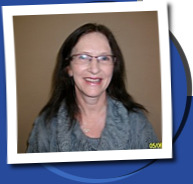| |
Paediatric Anaesthetics
Paediatric patients present unique circumstances to the anaesthetist as most often the parent or care-giver is responsible for their peri-operative care with regards to feeding and interpretation of thirst, pain etc. Babies and non verbal children present the most challenge as they cannot communicate their site of pain or describe what they are feeling. The parent is the best person to interpret what the infant needs are. An older child can communicate but may say yes to all questions in order to please the anaesthetist or nurse asking the questions. Many tools are used to assess pain . The visual analogue scale is numbered 1-5 and may have smiling to frowning faces for the child to describe their level of pain or discomfort.
Generally most children are allowed soft or light food up until 4 hours before the scheduled surgery and clear fluids like water or apple juice, but not milk, until 2 hours before surgery. Usually there is minimal pain and nausea post-operatively but it is wise to start the first feed with a yoghurt or soft porridge if the surgery will allow feeding.
Depending on the hospital protocol and the type of surgery a child may or may not be allowed to wear their own pyjamas into theatre. For the child that is very particular about their clothing the child can be undressed once under anaesthetic.
It is usually acceptable for a child to bring a dummy or a favourite toy into theatre. This has a calming effect as the whole theatre experience can be quite intimidating for them as they are seeing new people and a new environment.
Emergence delirium is a condition that occurs during the awakening phase. The child may be very restless and thrashing about during the recovery phase. This is fortunately short lived and the child will have no recollection. There are no consequences. This may be very disturbing for a parent and often the parent will only be called to see the child once this has stopped. It is caused by the anaesthetic volatile agent used to start the anaesthetic.
It is best for a child to be kept quiet for the first 24 hours after an operation and not be allowed to run around outside or ride a bicycle as their protective reflexes may be a bit slow while their body is getting rid of the the anaesthetic drugs.
|
|
 |



